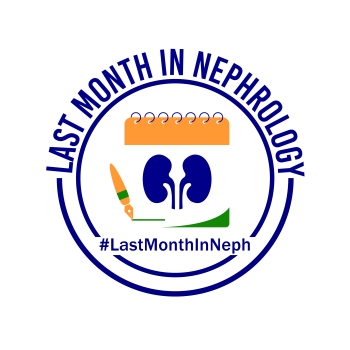Are you CONVINCED?
It is believed that conventional diffusion-based dialysis is not effective to remove larger-molecular-weight toxins. In contrast, hemodiafiltration (HDF) uses convection to remove broad range of uremic toxins and may improve patient outcomes. CONVINCE trial was a multinational, randomized, controlled trial that compared the benefits of high-dose hemodiafiltration (HDF) with standard hemodialysis (HD) in adult patients with end-stage renal disease (ESRD). A total of 1360 patients were randomized to receive either high-dose HDF or high-flux HD.
The intervention group received high-dose HDF with on-line production of substitution fluid and bicarbonate-based dialysis fluid at a convection volume of at least 23 liters per session in the postdilution mode. The control group received conventional dialysis with a high-flux dialyzer. Median dialysis vintage of enrolled patient was around 3 years.
The primary outcome was death due to any cause. After a median follow-up of 30 months, high-dose HDF resulted in a lower risk of death (17.3%) than conventional high-flux HD (21.9%) (hazard ratio [HR], 0.77; 95% CI, 0.65-0.93).
At first glance, the trial appears to provide unequivocal evidence of the benefit of HDF over HD. However, there is a caveat. The treating physicians may have enrolled patients who were likely to have reached a convection volume of 23 liters. These patients were likely to be healthier than the average patient with ESRD. It can be recalled that median dialysis vintage was 3 years. The mortality rate was lower than expected in both groups.
Overall, the CONVINCE trial provides evidence that high-dose HDF may be associated with a lower risk of death than conventional HD in patients with ESRD. However, the results of the trial should be interpreted with caution, as the study population may have been healthier than the average patient with ESRD. It remains to be seen what would happen if incident dialysis patients were enrolled. The magnitude of benefit may not replicate in all patients. Also, widespread application of HDF demands additional resources in terms of ultrapure water, HDF machines and technical expertise.
Short-Course Antibiotic Therapy for Uncomplicated UTI in Children(SCOUT TRIAL)
SCOUT was a randomized, controlled, non-inferiority trial that evaluated the efficacy of short-course antibiotic therapy (5 days) versus standard-course antibiotic therapy (10 days) for uncomplicated urinary tract infection (UTI) in children aged 2 months to 10 years.
Children who showed clinical improvement after 5 days of therapy were randomized to receive either another 5 days of antibiotics (standard course) or 5 days of placebo (short course). The primary outcome was treatment failure, which was defined as symptomatic UTI at or before the first follow-up visit at 11 to 14 days.
Of 664 randomized children, primary outcome occurred in 0.6% (2) children assigned to standard course and 4.2% (14) children assigned to short course. This means that treatment failure was 7 times more common in the short-course arm. The absolute difference was 3.6%.
The non-inferiority margin specified was a difference in absolute rate of treatment failure of more than 5%. In other words, the primary non-inferiority analysis evaluated whether there was a greater than 5% increase in the absolute risk of treatment failure in children assigned to short-course therapy compared with children assigned to standard-course therapy. The upper bound of the 95% confidence interval (CI) was 5.5%, which was below the non-inferiority margin. Therefore, the study did not prove non-inferiority of short-course therapy compared to standard-course therapy.
Some aspects of the trial are to be highlighted. One, though the distinction between cystitis and pyelonephritis is difficult in children, short course might be sufficient for cystitis. Two, there is differing follow up times to assess treatment failures for two arms. Both the arms were followed up for primary outcome at same time while the antibiotic would have been stopped earlier for the short course group.
SCOUT was a well conducted trial, but the evidence generated does not convince us that a short course is sufficient to eradicate infection. Though the authors conclude “short course is a reasonable option”. We are skeptical about this option. Duration of antibiotics must be decided on case-to-case basis and after discussing with care givers regarding risks and benefits of short course antibiotics.
